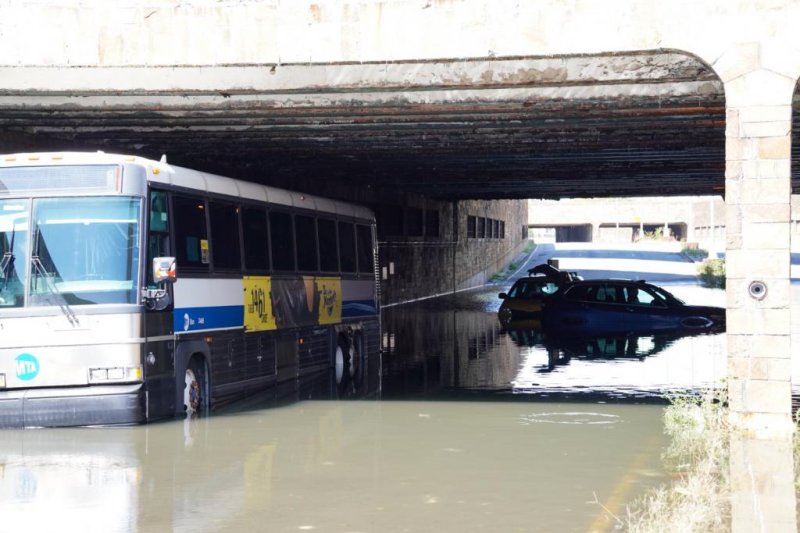
Hurricane Larry is expected to bring swells to the U.S. Atlantic coast. Photo courtesy of NOAA
Sept. 7 (UPI) -- Hurricane Larry was forecast to skirt east of Bermuda, but possibly make landfall in Newfoundland later this week, forecasters said Tuesday.
The Category 3 storm slightly weakened throughout the day and was expected to drop down to Category 2 strength in the coming hours.
In its 11 p.m. EDT update, the National Hurricane Center said the eye of Hurricane Larry was located about 660 miles southeast of Bermuda. It had maximum sustained winds of 115 mph.
It is moving toward the northwest at 12 mph and that general motion is expected to continue through Wednesday, followed by a turn toward the north-northwest and north on Thursday.

A tropical storm watch was in effect for Bermuda.
"Swells generated by Larry will continue to affect the Lesser Antilles, portions of the Greater Antilles and the Bahamas through midweek, and impact Bermuda through the end of the week," the NHC said. "Significant swells should reach the east coast of the United States and Atlantic Canada by midweek and continue affecting these shores through the end of the week."
The swells are forecast to cause life-threatening surf and rip current conditions.











